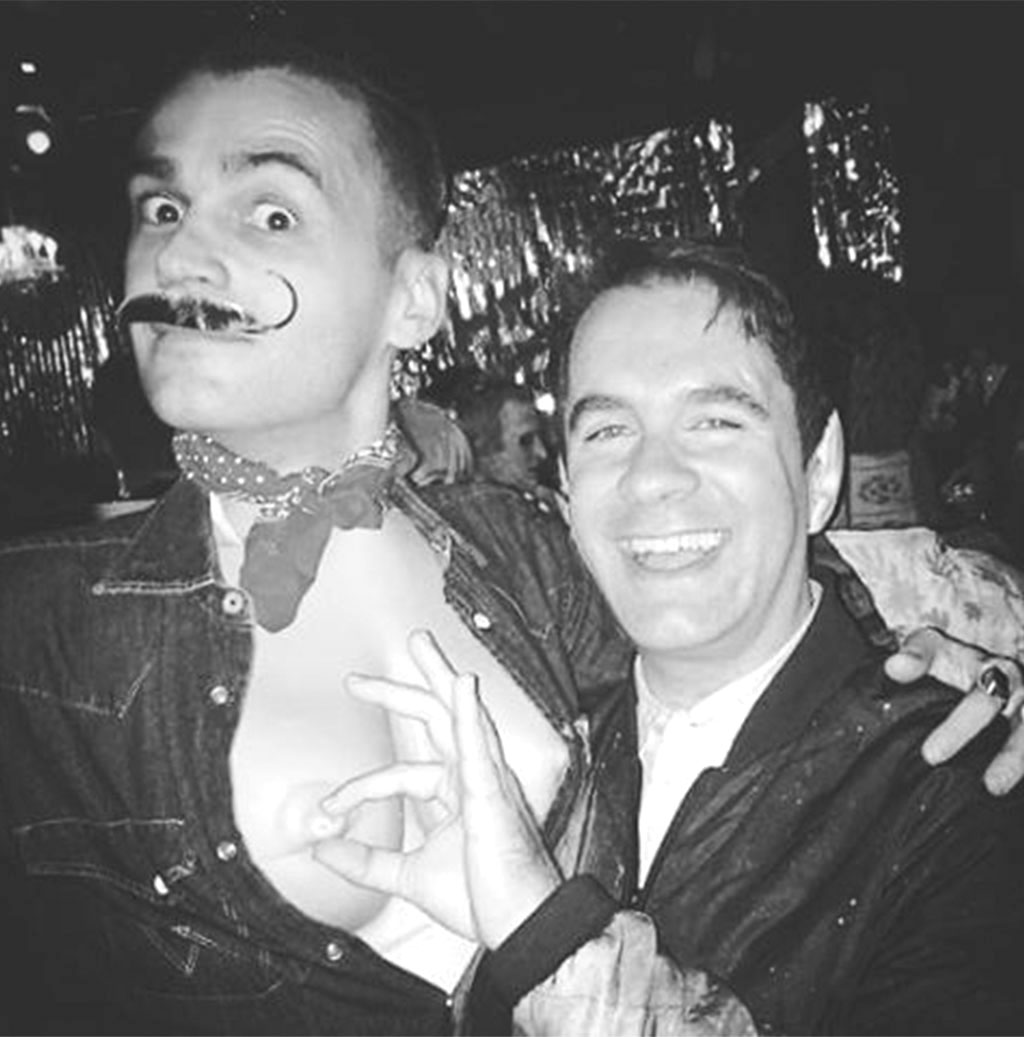09-02-16 // THE HOME AS POLITICAL ARENA – INTERVIEW WITH ANDRÉS JAQUE

Instagram andres_jaque; November 1, 2015; DCTV: andres_jaque Please welcome Dalí Parton (Salvador + Dolly). Great night at @storefrontnyc Critical Halloween! !!!! Thanks @rutgerhuiberts for the great pic!!! With @ivanlopezmunuera #salvadordali #dollyparton; hwaneetoe top-notch costume by @ivanlopezmunuera!; alexmartinezmolinero Jaja estáis geniales @andres_jaque, abrazos!
Bernd Upmeyer spoke with Spanish architect Andrés Jaque. His work explores the role architecture plays in the making of societies. In 2003 he founded the Office for Political Innovation, a trans-disciplinary agency engaged in creating an ordinary urbanism out of the combination of heterogeneous architectural fragments. Currently he is Advanced Design Professor at the Graduate School of Architecture, Planning and Preservation GSAPP Columbia University, and Visiting Professor at Princeton University SoA. The interview took place on February 9, 2016.
Christmas Trees and Remote Controls
Bernd Upmeyer: In 2010 during the Architecture Biennale in Venice, you explained to Hans Ulrich Obrist that you ended up being an architect due to very domestic experiences and interests in things like interior decoration, Christmas trees, dinner-table settings, etc. What fascinated you about these very domestic aspects of cities?
Andrés Jaque: I was interested in the way architecture could make the best of its role in the shaping of politics and how things that happen in domestic interiors are actually completely relevant for our societies. A great number of the processes by which our societies are shaped happen in domestic interiors. The way we decide, for example, how to construct our gender or the way we relate to sexuality, education, or consumption. Within the domestic realm, a lot of things are addressed as practical daily life decisions, and that makes it the place where important aspects of our societies can be reconstructed as mundane ones. But often the particular architectural technologies then constitute the home, such as table-settings, laundry, Christmas trees, boilers, wallpapers, pets, garbage collection… are perceived as banal, decorative, or unimportant realities unrelated to politics. So, that particular concern was my introduction to architecture. I wanted to know how architecture could participate in politics in particular, but through material and object-oriented politics. A very different approach to the one that at that time, the 1990s, was current among most architects. Political collective action was seen as something that happened mainly in the streets, squares, and public spaces, and not in the domestic areas of life. The role-play of architecture was mainly perceived as a very passive one, just hosting or containing protest, but architectural devices in themselves were not perceived as actors contributing to the collective making of politics.
BU: When a lot of political activities and actions are happening within domestic spaces, what is still happening in the streets? Are the streets becoming less important? Is it all about interiors these days?
AJ: I think that there is collusion but also a certain friction between what happens in the streets and what happens indoors, and what happens off-line and on-line. But I would suggest that the realm of domesticity is not that much acknowledged when you think, for instance, of the Arab Spring. There, the role of squares was highlighted by everyone. The squares became famous and extremely popular. But it was not appreciated that nothing would have happened there without the activities and collaborations that took place at the home, where people watching TV or interacting online from their sofas were in fact scaling up to what happened in the squares…
…the complete interview was published in MONU #24 on the topic of Domestic Urbanism on April 18, 2016.
Title: The Home as Political Arena
Project: Interview with Andrés Jaque
Date: February 2016
Type: Commissioned interview
Topic: Domestic Urbanism
Organizer: MONU
Status: Published
Publications: MONU #24, P. 4-11
Interviewer: Bernd Upmeyer